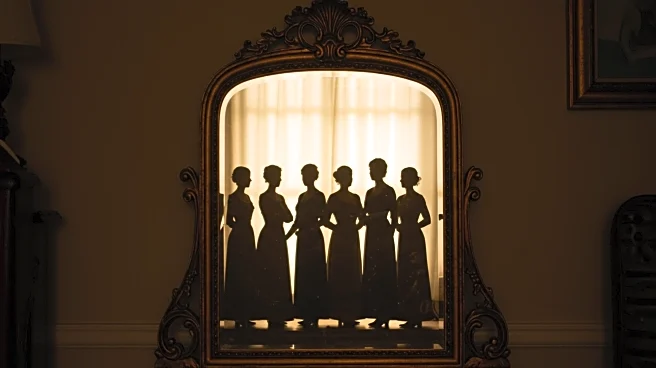What is the story about?
What's Happening?
Denée Benton, who plays Peggy Scott in HBO's 'The Gilded Age,' reflects on the developments in Season 3, particularly the portrayal of Black women in period dramas. Benton highlights the significance of her character's journey, which includes a proposal from Dr. William Kirkland, played by Jordan Donica. The season finale features Peggy's interactions with her mother, Dorothy Scott, played by Audra McDonald, and her new love interest's mother, Elizabeth Kirkland, portrayed by Phylicia Rashad. Benton emphasizes the importance of showing Black women in their softness and vulnerability, a theme that resonates throughout the season.
Why It's Important?
The portrayal of Black women in period dramas is often limited or stereotyped, making Benton's role in 'The Gilded Age' significant for representation. Her character, Peggy Scott, challenges these norms by being a strong, successful writer and activist. This representation is crucial for audiences who see themselves reflected in Peggy's character, offering a broader narrative that includes Black families and communities in historical contexts. Benton's performance and the show's storyline contribute to a more inclusive depiction of history, providing viewers with a richer understanding of the era.
What's Next?
The season finale sets the stage for potential developments in Season 4, including Peggy's career and personal life. The proposal from Dr. Kirkland suggests a power couple dynamic, with implications for both characters' futures. The show may explore the challenges Peggy faces with her future mother-in-law, Elizabeth Kirkland, and how she navigates her professional ambitions alongside her personal relationships. Fans are eager to see how these storylines unfold, particularly in terms of Peggy's continued representation as a modern, visionary woman.
Beyond the Headlines
The show's depiction of Black families and communities during the Gilded Age opens up new narratives within period dramas. By expanding Peggy's story, the series creates a space for diverse historical representation, akin to the varied family dynamics seen in shows like 'Game of Thrones.' This approach challenges traditional storytelling in period dramas, offering a more nuanced view of history that includes the contributions and experiences of Black individuals and families.
















